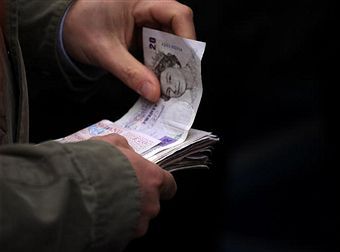 Today, we have seen the 50p tax in action: reflected in January’s bumper tax receipts. A jubilant John Rentoul has just tweeted: “Where is Fraser Nelson when you need him? The 50p income tax rate has brought in a ton of money. He said it would
probably reduce revenue.” He is absolutely right – but not for the reasons he thinks. Were John self-employed, he’d know that the tax paid last month was in respect of the 2009-10
tax year – when the top rate of tax was 40p. Of course, many of the super-rich are on PAYE – but that has happened since last April. It doesn’t explain a January uplift. Today’s
surprise tax haul can be partly explained by the fact that folk sucked forward their income, to avoid the 50p rate. That’s what high-paid people do. They shift money, suck forward earnings,
move cash abroad, work less, incorporate, take payment in other means, do anything they can to minimise their tax exposure. Those on the highest incomes can usually afford an accountant to make
sure they don’t hand money over at what is (when you count NI) a 51p tax. (This will rise to 52p in April, due to tax rises which the Chancellor is planning).
Today, we have seen the 50p tax in action: reflected in January’s bumper tax receipts. A jubilant John Rentoul has just tweeted: “Where is Fraser Nelson when you need him? The 50p income tax rate has brought in a ton of money. He said it would
probably reduce revenue.” He is absolutely right – but not for the reasons he thinks. Were John self-employed, he’d know that the tax paid last month was in respect of the 2009-10
tax year – when the top rate of tax was 40p. Of course, many of the super-rich are on PAYE – but that has happened since last April. It doesn’t explain a January uplift. Today’s
surprise tax haul can be partly explained by the fact that folk sucked forward their income, to avoid the 50p rate. That’s what high-paid people do. They shift money, suck forward earnings,
move cash abroad, work less, incorporate, take payment in other means, do anything they can to minimise their tax exposure. Those on the highest incomes can usually afford an accountant to make
sure they don’t hand money over at what is (when you count NI) a 51p tax. (This will rise to 52p in April, due to tax rises which the Chancellor is planning).
The way to tap the rich is to reduce the rate. This basic paradox is grasped across the world. The reason that so many countries have cut the top rate of tax is to squeeze more from the well-paid,
not less:

Osborne will by now have worked out that under Brown the Treasury justified the 50p tax by cooking the books. It assumed that the ‘elasticity ratio’ – that is, the rate at which the high-paid change their behaviour to adjust for high tax – was exactly the same as the rest of the country. Foreign studies suggest that they are three times as responsive, or even more. That’s why the Taxpayers’ Alliance suggests the 50p tax will lose something in the order of £4 billion a year – while doing damage to Britain’s reputation that will take years to repair. When you get the reputation as a country that regards rich folk as ATMs, it takes a long time to shake it off.
Osborne says the 50p tax will be abolished, and I take him at his word. But what we have seen today is, most likely, an indication of what the Treasury under Brown always underestimated: how ingenious British people are when it comes to the art of legally avoiding taxation.







Comments